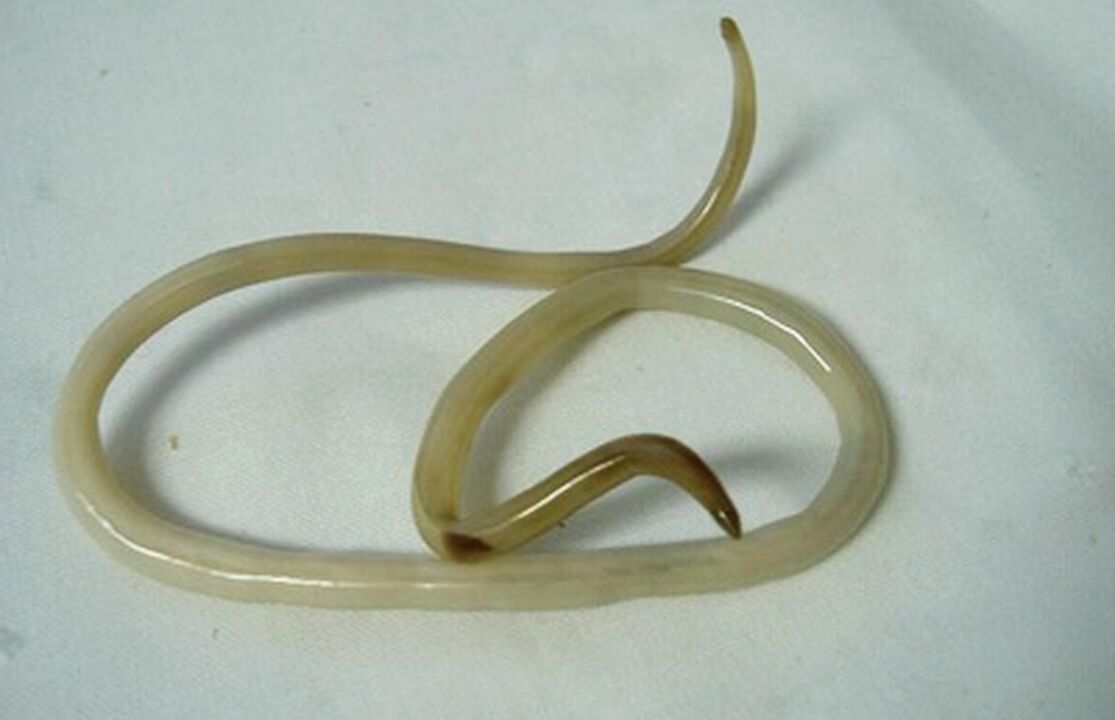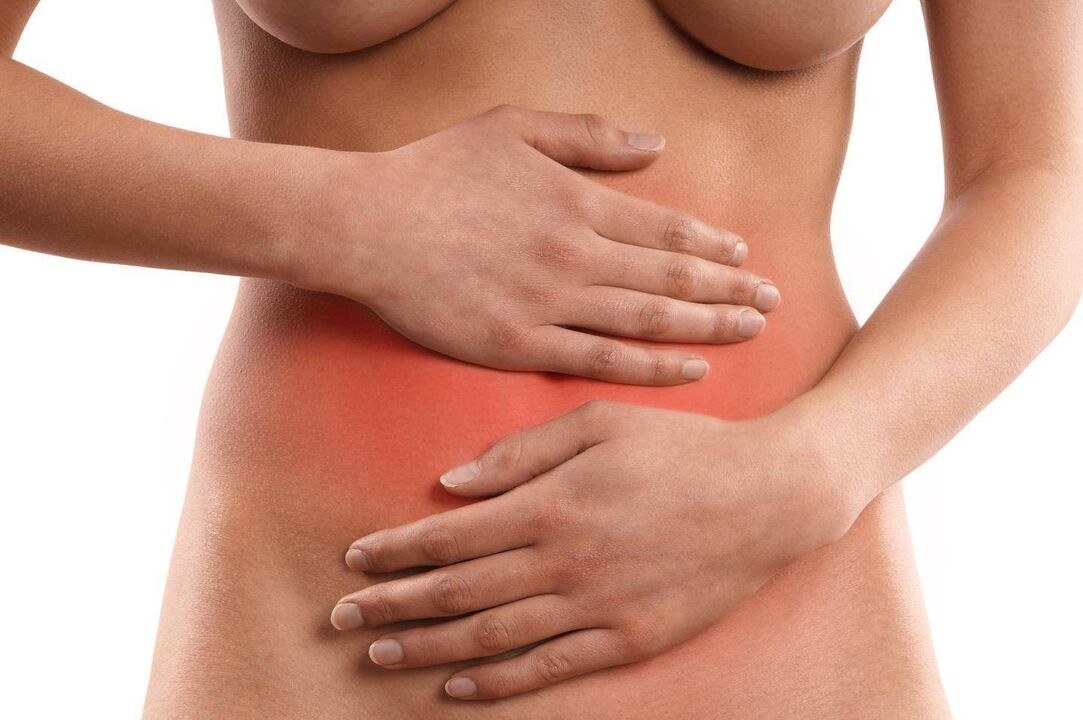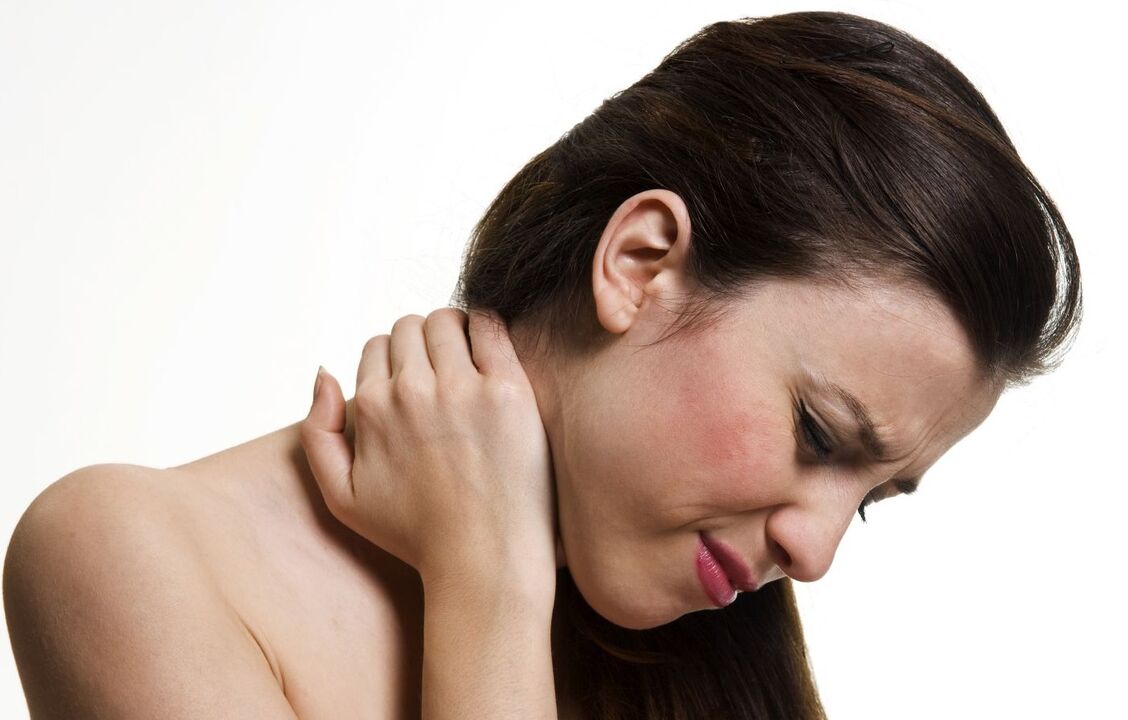Helminthiases are common in the modern world. They have the ability to affect many organs and tissues, disrupting their work. Furthermore, the clinical picture of helminthiasis in humans can be very diverse. What are the symptoms of worm disease in humans?
According to statistics, every year about two million people are infected with helminths, but if unregistered cases are included, this number can increase several times. Infections in children and adolescents occur more often.

All helminth species can be divided into extra-gastrointestinal (tissue) and intestinal. Tissue hosts are animals, with humans acting as intermediate hosts for them. In this case, the disease will manifest itself in different ways, depending on which organs the larvae will migrate to. For example, if the larvae migrate through the lungs, then the symptoms will resemble pneumonia, if through the intestines - bleeding, an inflammatory reaction; move through the pancreas or bile ducts with the risk of clogging them.
How can you get infected?
What are the routes of infection?
- Through soil and water (geohelminthiases) - soil contamination occurs when helminth eggs enter it in the feces of people or animals. If you eat undercooked root vegetables or water from open tanks, helminth eggs will enter the body. Therefore, all vegetables, fruits, berries must be thoroughly washed with tap water and treated with boiling water. Drinking water from open reservoirs is prohibited. This route of infection can also occur when people come into contact with animals, especially pets. Therefore, children often get infected when playing with them.
- Contact with an infected person (eg, pinworms). During sleep, pinworms have the ability to crawl out of the anus and lay eggs. The patient is itchy. Eggs remain on hands, under fingernails, and if not removed from the skin in time, they remain on all objects that an infected person has come into contact with.
- Biohelminthiases - infection by eating raw or heat-treated meat, lard, or fish.
- Through insect bites.

Worms are basically a children's problem, when children, in the process of learning about the world, put their dirty hands and various objects in their mouth, taste them. This problem will only be resolved when the child is between three and six years old, and before that time, children are at a higher risk of infection than adults.
Common signs of infection
What signs will indicate the appearance of helminthiasis?
Symptoms of helminthiasis can resemble diseases of several organs: gastrointestinal tract, respiratory system, nervous system, immune system. Helminthiases can manifest themselves as an allergic reaction.
Digestive tract disorder
Localization of parasites in the intestine is manifested by symptoms of stomach and intestinal pain: the appearance of vomiting, diarrhea or constipation, nausea, abdominal distension, pain in the umbilicus, right hypogastric region. Constipation may be related to mechanical intestinal obstruction caused by helminths. The severity of symptoms depends on the number of helminths in the body.
Nervous system disorders and general manifestations
They are involved in the release of toxic substances by the parasite. The intensity of expression also depends on the number of helminths. Symptoms of dysfunction of the nervous system are as follows: dizziness, headache, nausea - migraine-like symptoms. There may be fever, muscle and joint pain. Appears drowsiness, excitability, sleep disturbance, anemia.
Allergic manifestations
With allergic manifestations, the gastrointestinal tract, skin and respiratory system are all affected. Appears itching, difficulty breathing, headache, dizziness, sometimes vomiting may occur. There may be a burning sensation in the throat, mouth, and nose. Nasal congestion and sneezing appear. How to distinguish an allergy from the symptoms of a helminth infection? The following laboratory and telltale signs should be considered:
- the patient's relatives have no history of allergies;
- the patient has no history of allergic reactions;
- a child's attendance in kindergarten;
- shortness of breath every two weeks;
- eosinophils in the blood test more than 8%;
- lack of effect from antiallergic therapy;
- in the immunoglobulin study, IgE was increased, while the allergen study was negative.
If the patient has the listed symptoms, the allergic manifestation is related to the infestation of the parasite.
Respiratory dysfunction
When the parasites invade the lungs, symptoms similar to pneumonia can appear: cough, fever, coughing up blood. A sore throat can also be a sign of helminthiasis. As the worms travel from the intestines to the lungs, a sore throat can occur. A sore throat is a sign of a foreign body. There is a dry cough that does not go away. A cough like this can be caused not only by the presence of parasites in the throat, but also if they are traveling through the nasopharyngeal tract. Mucus taken for analysis will help identify worms in the throat.
Decreased immune defense
Because helminths deprive the host of vitamins and minerals, and have a toxic effect, it reduces the immune defense. This is manifested by frequent colds or exacerbations of chronic diseases that do not go away, pharyngitis.
Damage to the female reproductive system
Violation of the function of the reproductive system in women does not always indicate gynecological diseases. Helminthiasis in the female body can also manifest as symptoms of dysfunction of the reproductive system. By what symptoms can one suspect the presence of helminths in the female genitalia? The decline of the reproductive system due to worms in women is manifested by discharge, genitals with an unpleasant odor.

In women, thrush can become a sign of helminthiasis. Thrush in women can develop due to a decrease in immunity and a violation of the microflora, which can occur with helminthiasis. Inflammatory diseases can affect the female reproductive system. With that, hair may fall out and fingernails may scab, drowsiness and fatigue may occur. The above are the symptoms of helminth infection in women.
How to determine the type of worms by symptoms
How to determine if helminths have entered the body? Symptoms are determined by the location of the parasite in the body and its type. When did the first symptoms appear? The first signs of a helminthic infestation can appear both after two days and six months, depending on the type of helminth.
Pinworms, intestinal worms - you can suspect an infestation of these worms if you are concerned about anal itching, which becomes more frequent at night. Usually the itching lasts for a few days, then goes away for a while and reappears.
Heartworm disease, schistosomiasis, filariasis - the main symptoms are anemia and vitamin deficiency. Such manifestations are associated with the toxic effect of worms on the intestinal tract and the development of dysbiosis.
Roundworm - in the early stages of ascariasis, the patient is weak, coughs, there may be blood in the sputum, there may be fever, suffocation (with a high number of parasites). In blood tests, the level of eosinophils increases and allergic reactions appear. In the later stages, the functions of the gastrointestinal tract are disturbed: protein cannot be digested, weight loss is strong.

Trichinosis - worms localized in the muscle. In the early stages, the disease presents with nausea, vomiting, loss of appetite. In the next stage, the worms colonize the muscles and cause muscle pain, eyelid swelling, fever, and skin rash. Furthermore, there is an obvious recovery, but the worms are in the muscles. The parasite causes dense lesions in the muscles.
Small liver fluke disease, fascioliasis - can suspect the invasion of these parasites if there is jaundice, hepatomegaly, spleen, pancreatitis, gastrointestinal dysfunction.
Strongyloidiasis - manifested by symptoms indicative of biliary tract dysfunction, dyspepsia and allergies.
Test for worms
When should you seek help from a specialist? Positive answers to the following questions will help diagnose the probability of having helminths in the body:
- itching in the anal area;
- nausea vomiting;
- constipation or diarrhea;
- allergic manifestations;
- rash on the skin;
- enlarged lymph nodes;
- frequent headaches, dizziness;
- restless sleep;
- a bitter taste in the mouth;
- fatigue, drowsiness;
- stomachache;
- jaundice;
- families with children attending kindergarten;
- pain in muscles and joints, not caused by anything;
- cyclical increase in body temperature;
- have animals in the house;
- eating inadequately heat-processed meat, lard or fish;
- weight loss;
- the use of unwashed fruits and vegetables without boiling water treatment.
The more positive the answers, the greater the risk of helminth infection in the body. If there are seven positive answers, the probability of having helminths, if more than fifteen, the probability of having helminths in the body is very high.
Diagnose
What methods of diagnosing parasites in the body are used?
- Feces on worm eggs.
- Scrape from the anus.
- Check for filariasis.
- Complete blood count (increased eosinophil level).
- Shaving from the vagina in women.
- Blood tests for giardiasis.
- Search for antibodies by serological methods; When can antibodies be found in the body? Twenty-one days after infection with worms.
- Study of operating materials (for echinococcosis).
- Lymph node biopsy (cysticercosis).
- Muscle biopsy - stenosis of the foreskin.
The treatment
For the treatment of helminthiasis, there are tablets with a wide and narrow range of action. Treatment of a certain type of helminth must be carried out with certain drugs. Tablets are prescribed by a doctor only after all examinations, since anthelmintics have a toxic effect on the body. Therefore, the doctor will choose the necessary regimen and duration of treatment, taking into account age and weight.
The following types of tablets are commonly used to treat helminthiasis:
- drugs containing mebendazole suitable for the treatment of trichocephalosis;
- Tablets containing Levamisole - used for ascariasis, intestinal worms, trichostrongylosis, strongyloidiasis.
In severe cases, medication may not help, then surgical treatment will be used.























